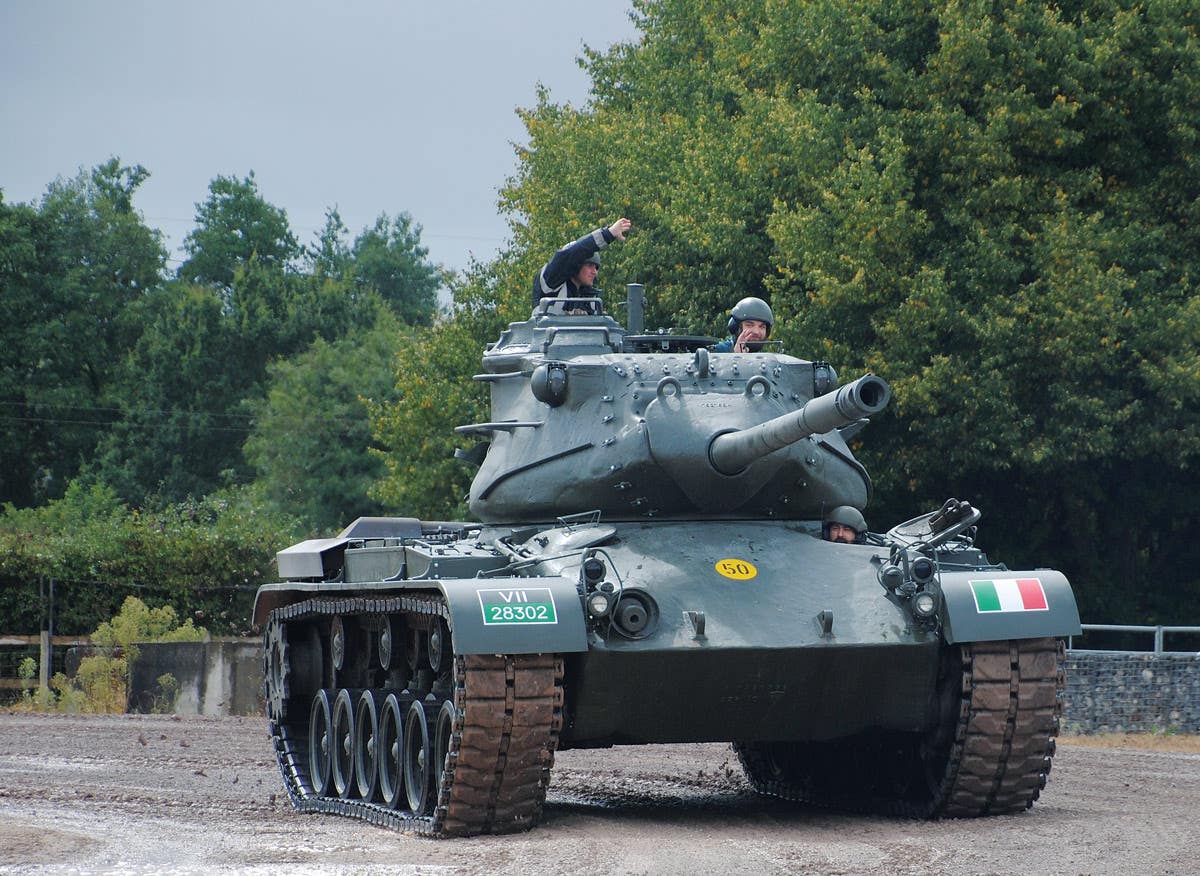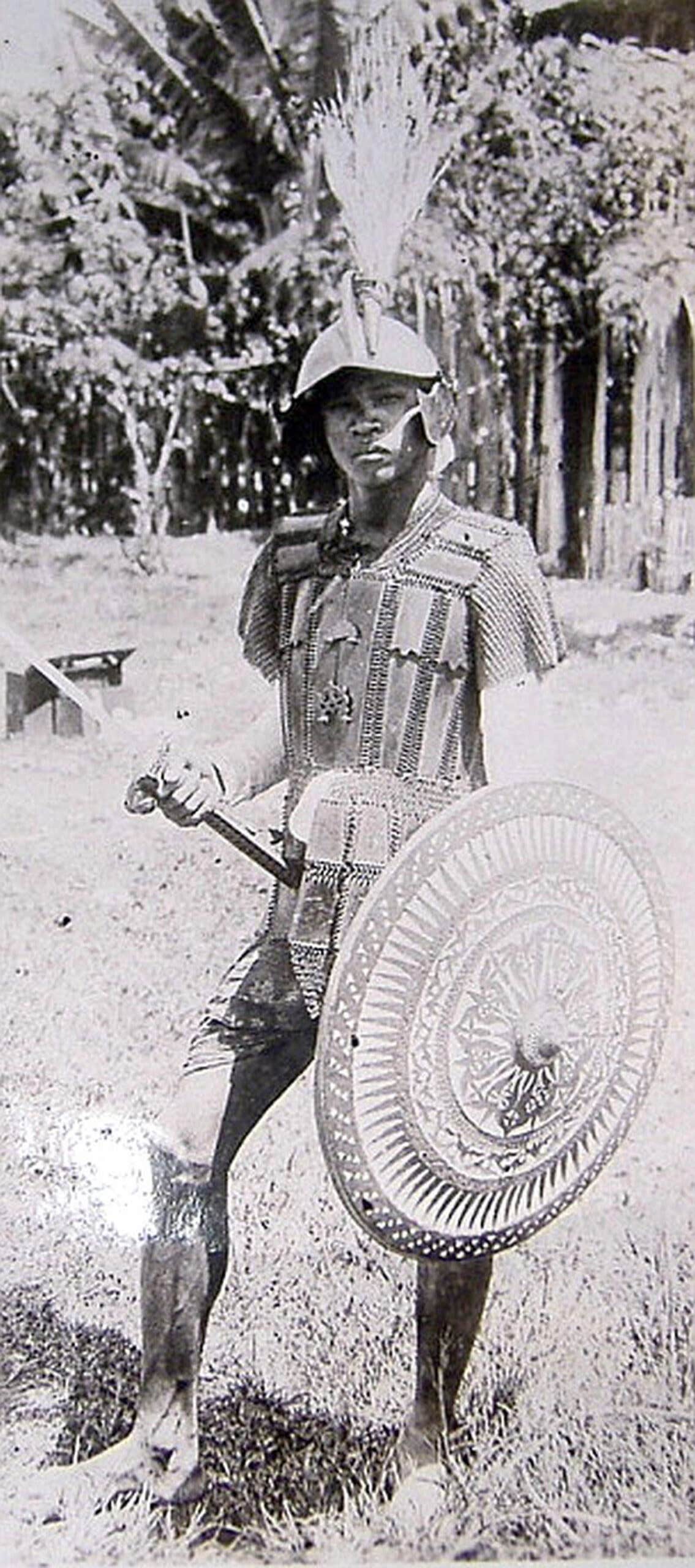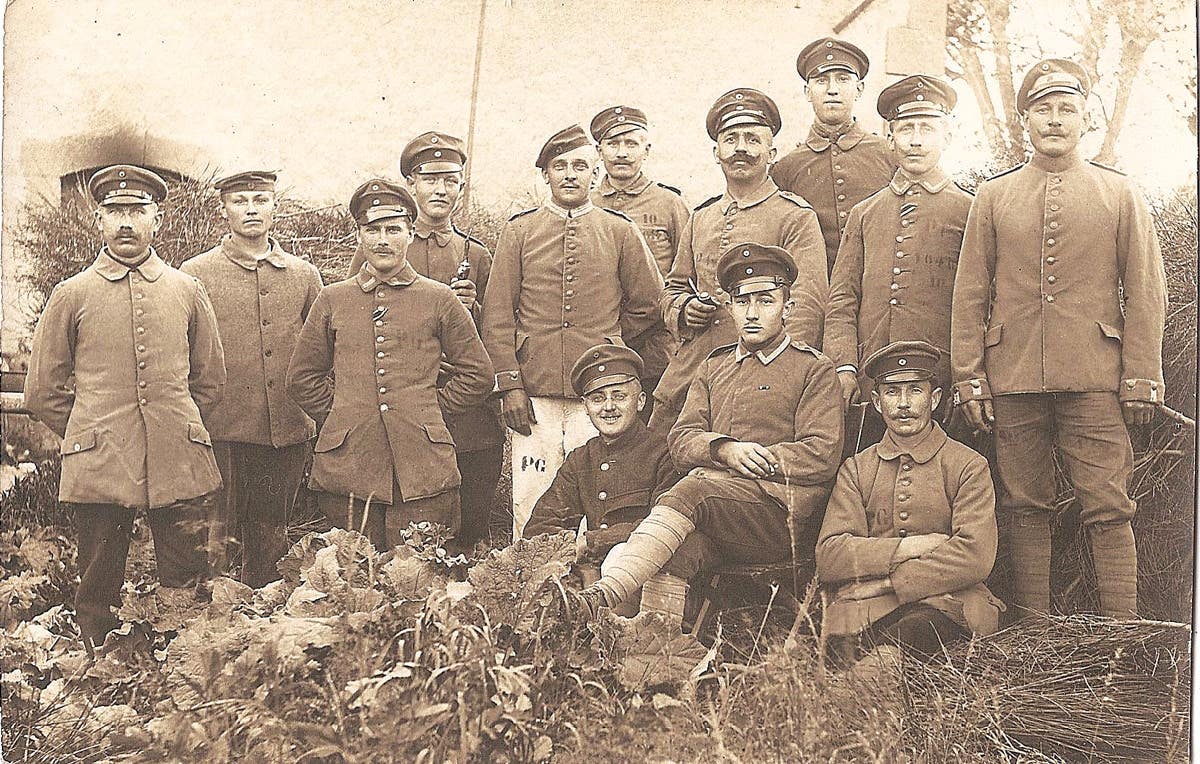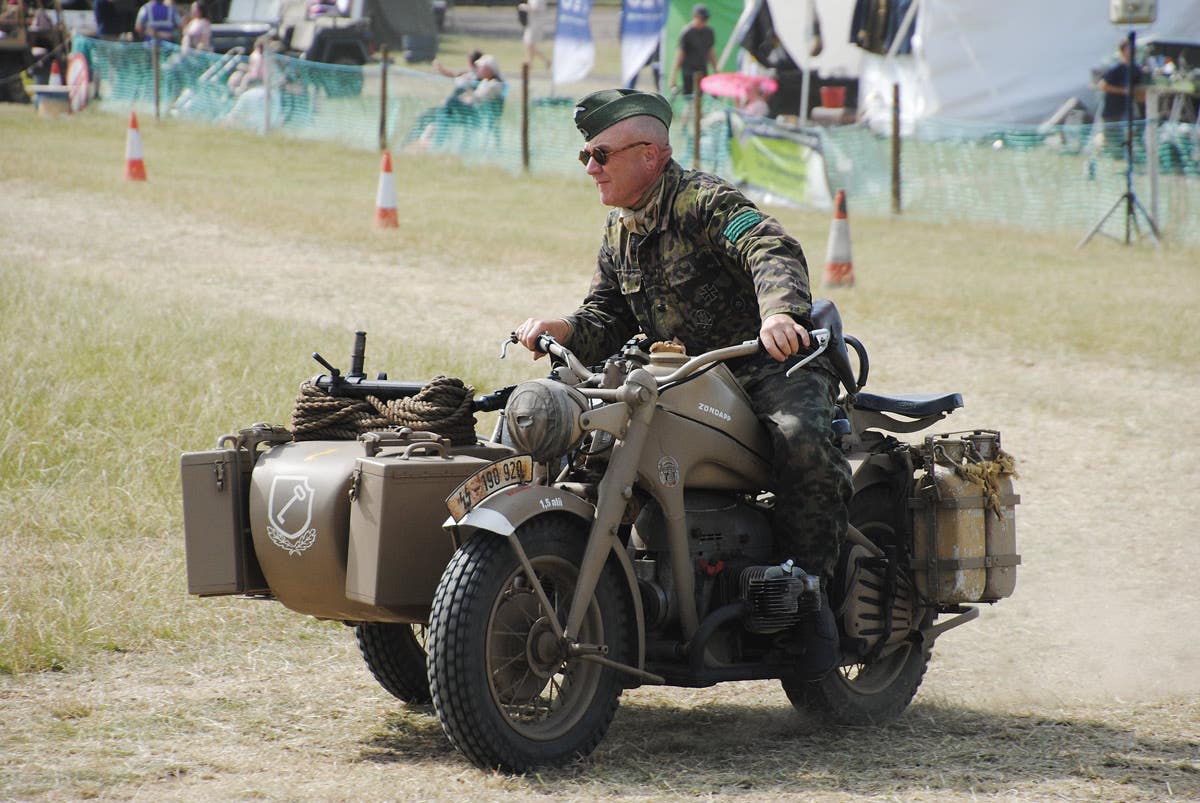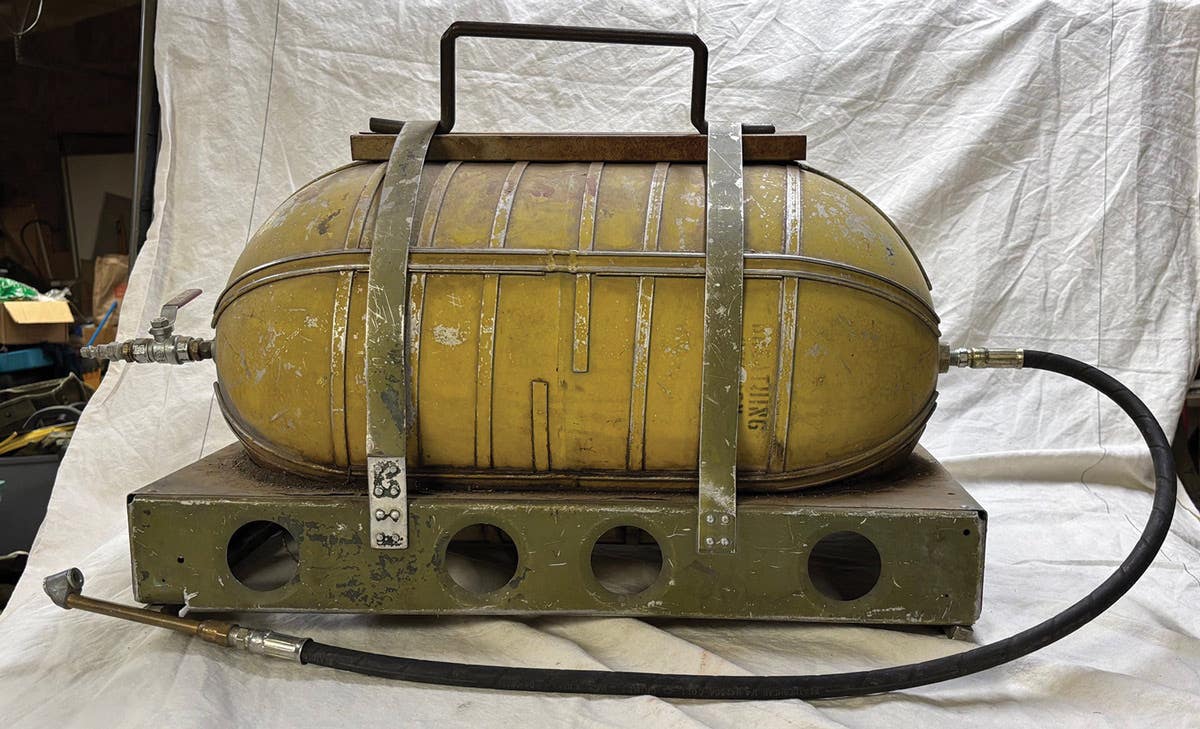Conviction made in military equipment scandal
A military equipment dealer has been convicted of scheming with soldiers at Fort Campbell, Kentucky, to steal sensitive material for sale to buyers in Russia, China and Mexico. John Roberts, of…
A military equipment dealer has been convicted of scheming with soldiers at Fort Campbell, Kentucky, to steal sensitive material for sale to buyers in Russia, China and Mexico. John Roberts, of Clarksville, Tenn., was found guilty of conspiracy to steal and sell government property, two counts of violating the Arms Export Control Act and 10 counts of wire fraud. Prosecutors said he faces up to five years in prison for conspiracy and up to 20 years for each count of arms export violations and wire fraud.
Eight people, including six Fort Campbell soldiers, had been indicted by a federal grand jury in Nashville and charged in connection with a conspiracy to steal sensitive U.S. Army equipment which was ultimately sold and shipped to anonymous eBay bidders, including some located in foreign nations.
According to the indictment, the soldiers charged stole more than $1 million worth of sensitive military equipment from the U.S. Army installation at Fort Campbell and sold it to others, including Roberts and Wilson, who then re-sold the equipment on eBay.
The items sold included sniper telescopes and rifle accessories, M240 and M249 machine gun parts and accessories, M203 grenade launcher sight, flight helmets, communication headsets, body armor, night vision goggles, “sensitive communications equipment,” and medical supplies. Many of these items were advertised as “Army Special Forces” and U.S. Government Issued (“USGI”). According to court papers, much of the equipment was classified by the Defense Department as “DEMIL D,” meaning it is not allowed to be sold and is meant to be destroyed by the military.
According to the original indictment, Roberts and Cory Wilson, aka Jason Cory Wilson, 42, of Clarksville illegally sold certain restricted U.S. Army equipment, including night vision helmet mounts, to eBay customers located in foreign nations including Russia, China, Hong Kong, Kazakhstan, Ukraine, Lithuania, Moldova, Malaysia, Romania, and Mexico. The indictment also alleged that Wilson sold flight helmet mounts, advertised as USGI, to buyers in Russia, China, and Kazakhstan and Roberts sold advanced communications headset helmets to buyers in Russia and China.
The conspiracy allegedly ran from 2013 into 2016. Text messages between the soldiers and the civilians pointed to regular meet-ups to swap cash for ballistic plates, helmets, scopes and gun sights, according to a statement by Chief Warrant Officer 2 Sarah Perry, an agent with the Army Criminal Investigation Command.
In 2014, the U.S. Customs and Border Protection agency notified Roberts that it had seized a military flight helmet he tried to ship overseas, indicating in a letter that Roberts was required to have a license to export that item. Roberts said under oath that he didn't remember reading that paragraph. Roberts also testified that he changed descriptions and values on shipping labels to minimize the risk of customs theft in other countries and to lower import taxes for the overseas buyers.
“eBay worked collaboratively with law enforcement agencies, providing them with the information necessary to support their case,” eBay executives said in a statement. “eBay has clear policies on what can and can’t be listed across various categories, and we have dedicated teams that proactively and reactively remove listings that are not permitted to be sold on our marketplace.”
Roberts also claimed he did not know the soldiers were bringing him stolen equipment. He said the items he bought and sold were commonly found in surplus stores, gun stores and on eBay. However, Michael Barlow, a former Fort Campbell platoon sergeant who pleaded guilty to theft of government property and conspiracy, testified that the operation had started off small, but eventually grew to truckloads of military equipment. Barlow testified that Roberts had given him a "Christmas list" of items to steal in Afghanistan to bring back to the United States. Barlow stated that when his unit returned to the United States it transported five large cargo containers of equipment. Roberts revealed that Barlow invited him to come on the Fort Campbell military post to look at cargo containers belonging to Barlow’s unit. Roberts said he was told the containers needed to be cleaned out of “pretty used stuff,” and that he took some items. He said the transaction occurred in broad daylight in front of other soldiers.
Barlow admitted he and other soldiers sometimes received $1,000 to $2,000 per truckload from Roberts.
Roberts was charged with 10 counts of wire fraud and one count of violating the Arms Export Control Act, and Wilson was charged with 7 counts of wire fraud, one count of money laundering, and one count of violating the Arms Export Control Act. Barlow was also charged with three counts of selling or conveying U.S. Army property without authority.
Roberts’ former business partner, Cory Wilson, testified that he and Roberts would find soldiers selling military items through classified ads or on Facebook, and then ask them for more expensive and harder-to-find items. Wilson pleaded guilty to buying and selling stolen military equipment, wire fraud and violating the Arms Export Control Act.
The six soldiers and one other civilian indicted in the case had pleaded guilty to their charges. These were:
- Cory Wilson, aka Jason Cory Wilson, 42, of Clarksville;
- U.S. Army Sergeant Michael Barlow, 29, of Clarksville;
- U.S. Army Sergeant Jonathan Wolford, 28, of Clarksville;
- U.S. Army Specialist Kyle Heade, 29, of Fort Campbell, Kentucky;
- U.S. Army Specialist Alexander Hollibaugh, 25, of Fort Campbell;
- U.S. Army Specialist Dustin Nelson, 22, of Fort Campbell; and
- U.S. Army Specialist Aaron Warner, 24, of Fort Campbell.
Former Army sergeant, Jonathan Wolford, testified on that he and another soldier, Dustin Nelson, took about 70 boxes of weapons parts and other gear, some of it labeled with the name of their company, to Wilson and Roberts, who paid them $1,200. Wolford plead guilty to conspiracy to steal government property.
They were both in charge of their company's arms supply room at the time, Wolford said, and started selling equipment that wasn't listed in the company's property books, including machine gun barrels, M4 rifle parts, pistol grips, buttstocks and other items typically used to repair weapons.
Prosecution asked Wolford why he didn't ask for more money for the equipment he was providing Roberts and Wilson. Wolford replied, "I was making a little bit of money. I didn't pay anything for it."



